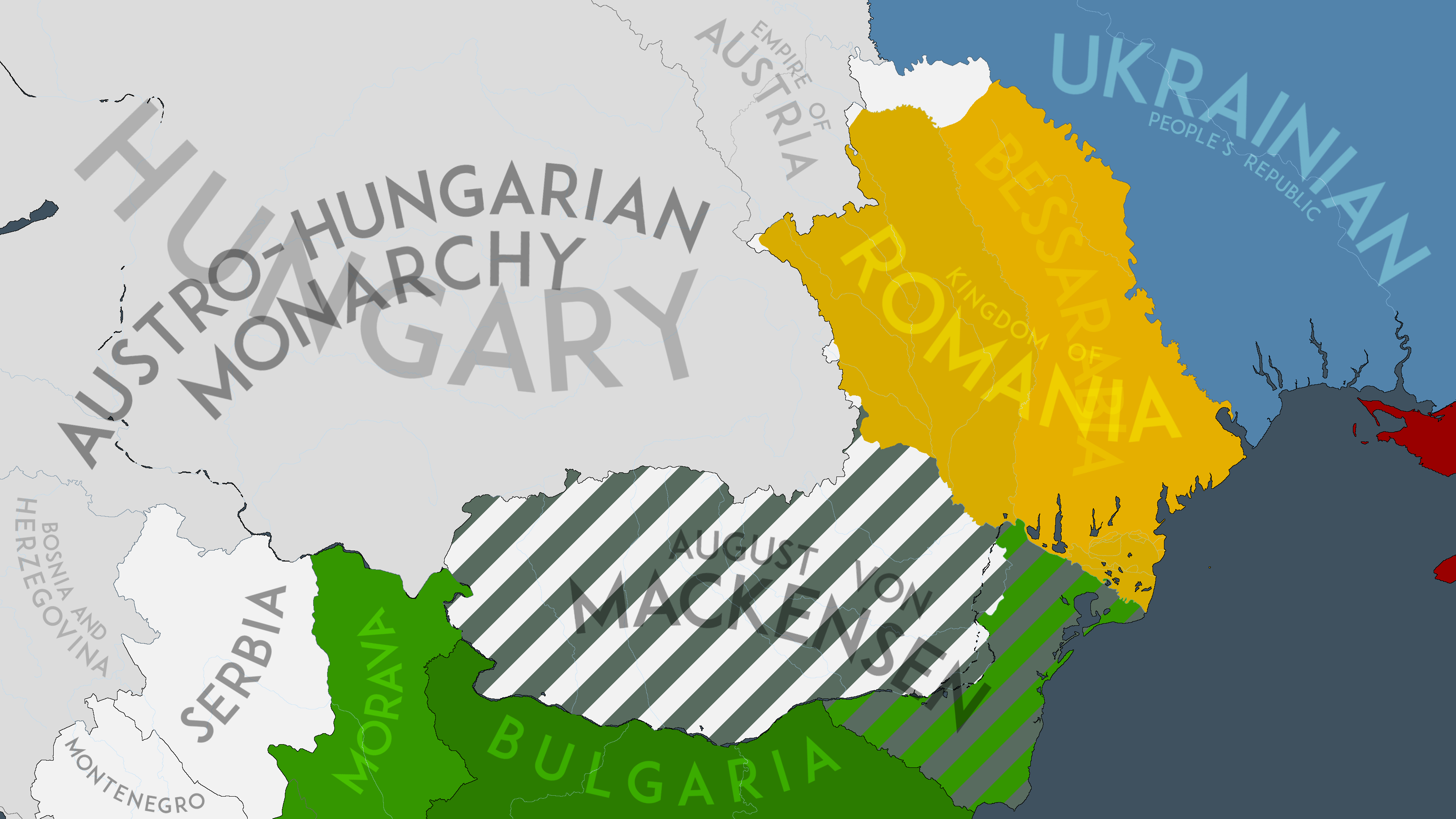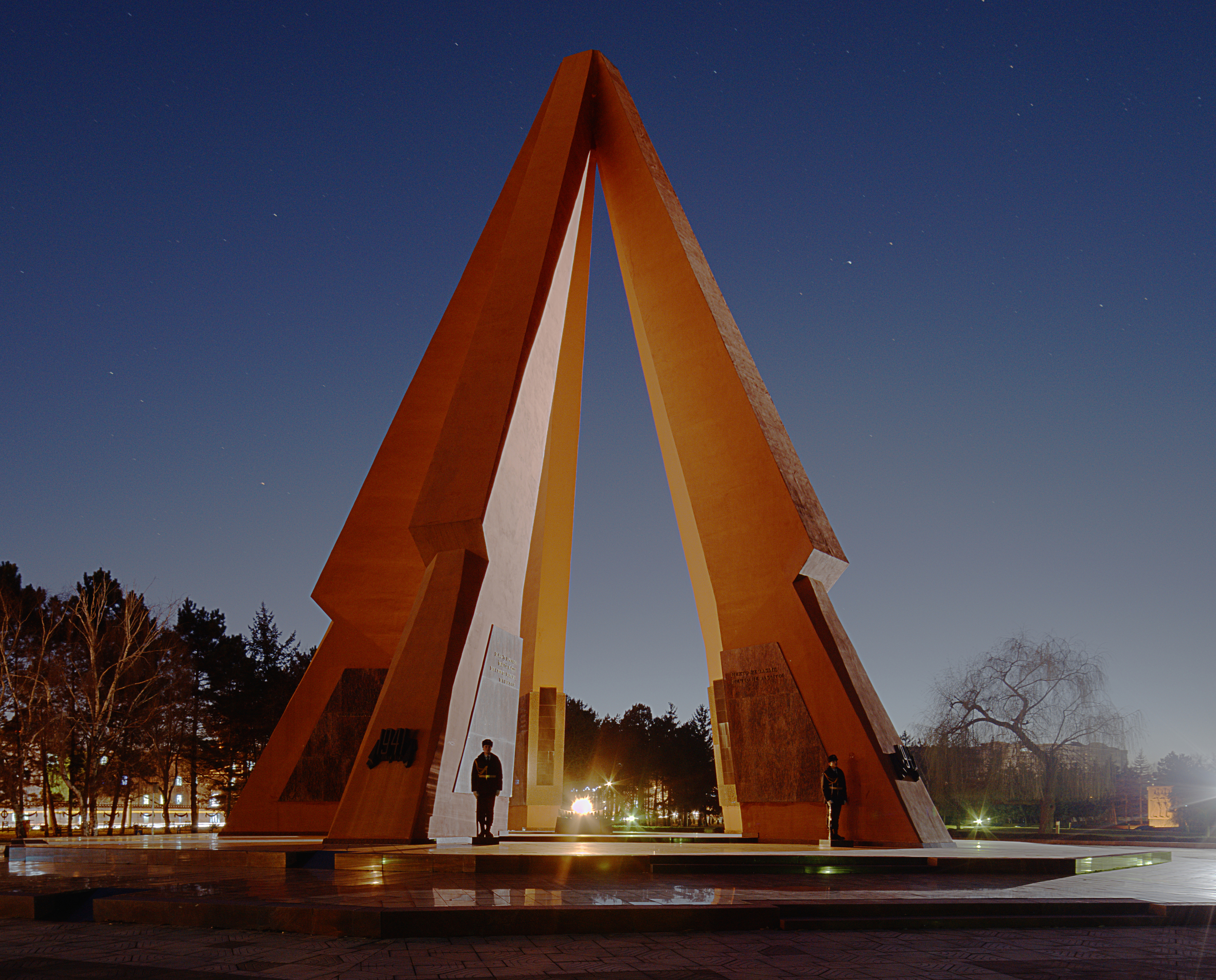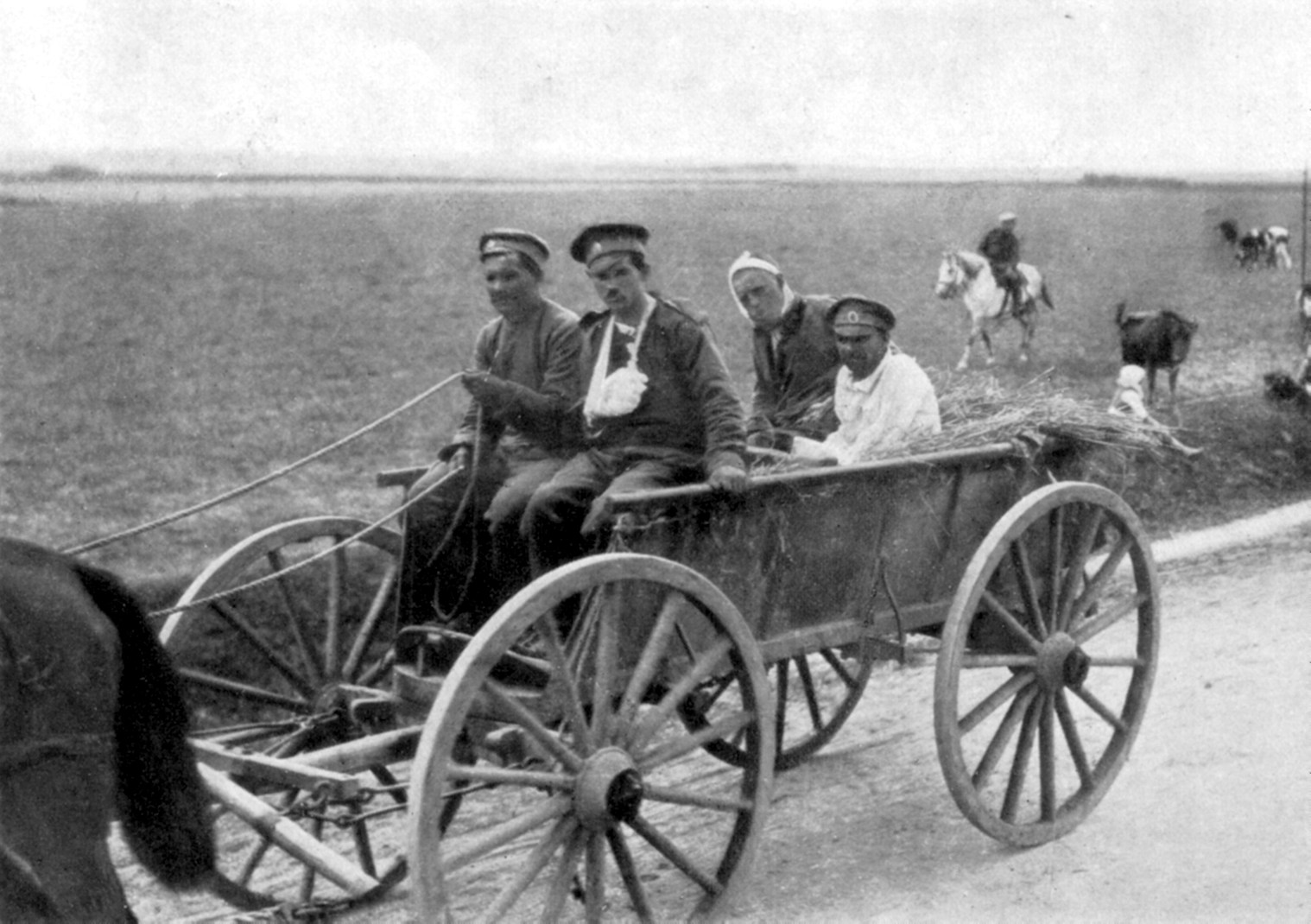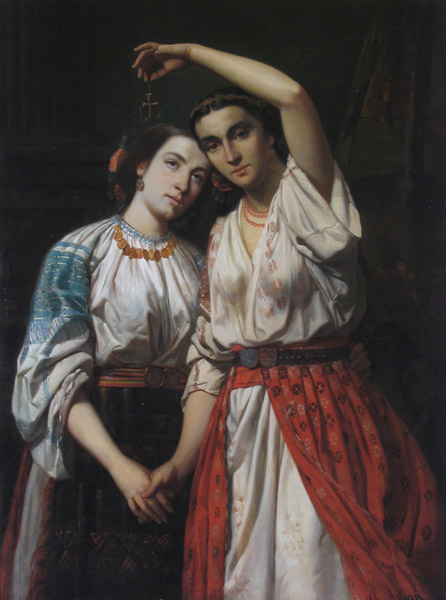|
Matei Donici
Matei Donici (; ; 8 January 1847 – 26 September 1921) was a Romanians, Romanian poet, Imperial Russian Army general, and politician from Bessarabia. He was born at a time when his native region, as the eastern half of Moldavia, had been taken over by the Russian Empire and organized into a Bessarabia Governorate; his family belonged to Boyars of Moldavia and Wallachia, Moldavian boyardom, having managed to preserve its estates. Though seeking and obtaining integration within the Russian nobility, the Donicis secretly cultivated Romanian nationalism, which shaped Matei's own outlook on politics. In the late 1860s, after flunking out of the Russian education system, he spent some time in Odesa and at his Bessarabian manor, composing poetry which spoke of Moldovans as a subset of the Romanians, and which included an all-out critique of Tsarist autocracy. Donici tried to shun Russification, but was eventually pushed into a military career, and as such forced to maintain discr ... [...More Info...] [...Related Items...] OR: [Wikipedia] [Google] [Baidu] |
Ivancea
Ivancea is a commune in Orhei District, Moldova. It is composed of three villages: Brănești, Furceni and Ivancea. Notable people * Matei DoniciReferences Communes of Orhei District {{Orhei-geo-stub ...[...More Info...] [...Related Items...] OR: [Wikipedia] [Google] [Baidu] |
Russification
Russification (), Russianisation or Russianization, is a form of cultural assimilation in which non-Russians adopt Russian culture and Russian language either voluntarily or as a result of a deliberate state policy. Russification was at times pursued by the governments of the Russian Empire and the Soviet Union, either as a goal in itself or as a consequence of policies aimed at centralisation and modernisation. The major areas of Russification are politics and culture. In politics, an element of Russification is assigning Russian nationals to lead administrative positions in national institutions. In culture, Russification primarily amounts to the hegemony of the Russian language in official business and the strong influence of the Russian language on national idioms. The shifts in demographics in favor of the ethnic Russian population are sometimes considered a form of Russification as well. Some researchers distinguish ''Russification'', as a process of changing one's ethn ... [...More Info...] [...Related Items...] OR: [Wikipedia] [Google] [Baidu] |
Union Of Bessarabia With Romania
The union of Bessarabia with Romania was proclaimed on by Sfatul Țării, the legislative body of the Moldavian Democratic Republic. This state had the same borders of the region of Bessarabia, which was annexed by the Russian Empire following the Treaty of Bucharest (1812), Treaty of Bucharest of 1812 and organized first as an ''Oblast'' (autonomous until 1828) and later as a Bessarabia Governorate, Governorate. Under Russian rule, many of the native Tatars were expelled from parts of Bessarabia and replaced with Moldavians, Wallachians, Bulgarians, Ukrainians, Greeks, Russians, Lipovans, Cossacks, Gagauzes and other peoples, although colonization was not limited to formerly Tatar-inhabited lands. Russia also tried to integrate the region by imposing the Russian language in administration and restricting education in other languages, notably by later banning the use of Romanian in schools and print. The beginning of World War I saw an increase in national awareness among the Bes ... [...More Info...] [...Related Items...] OR: [Wikipedia] [Google] [Baidu] |
Chișinău
Chișinău ( , , ; formerly known as Kishinev) is the Capital city, capital and List of cities and towns in Moldova, largest city of Moldova. The city is Moldova's main industrial and commercial centre, and is located in the middle of the country, on the river Bîc, a tributary of the Dniester. According to the results of the 2014 Moldovan census, 2014 census, the city proper had a population of 532,513, while the population of the Municipality of Chișinău (which includes the city itself and other nearby communities) was 700,000. Chișinău is the most economically prosperous locality in Moldova and its largest transportation hub. Nearly a third of Moldova's population lives in the metro area. Moldova has a Moldovan wine, history of winemaking dating back to at least 3,000 BCE. As the capital city, Chișinău hosts the yearly national wine festival every October. Though the city's buildings were badly damaged during the World War II, Second World War and earthquakes, a rich a ... [...More Info...] [...Related Items...] OR: [Wikipedia] [Google] [Baidu] |
February Revolution
The February Revolution (), known in Soviet historiography as the February Bourgeois Democratic Revolution and sometimes as the March Revolution or February Coup was the first of Russian Revolution, two revolutions which took place in Russia in 1917. The main events of the revolution took place in and near Petrograd (now Saint Petersburg), the then-capital of Russia, where long-standing discontent with the monarchy erupted into mass protests against food rationing on 23 February Old Style and New Style dates, Old Style (8 March Old Style and New Style dates, New Style). Revolutionary activity lasted about eight days, involving mass demonstrations and violent armed clashes with police and Special Corps of Gendarmes, gendarmes, the last loyal forces of the Russian monarchy. On 27 February O.S. (12 March N.S.), most of the forces of the capital's garrison sided with the revolutionaries. In the same day, the Russian Provisional Government, made up by left-leaning State Duma (Russ ... [...More Info...] [...Related Items...] OR: [Wikipedia] [Google] [Baidu] |
Imperial Japanese Army
The Imperial Japanese Army (IJA; , ''Dai-Nippon Teikoku Rikugun'', "Army of the Greater Japanese Empire") was the principal ground force of the Empire of Japan from 1871 to 1945. It played a central role in Japan’s rapid modernization during the Meiji period, fought in numerous conflicts including the First Sino-Japanese War, the Russo-Japanese War, World War I, the Second Sino-Japanese War, and World War II, and became a dominant force in Japanese politics. Initially formed from domain armies after the Meiji Restoration, it evolved into a powerful modern military influenced by French and German models. The IJA was responsible for several overseas military campaigns, including the invasion of Manchuria, involvement in the Boxer Rebellion, and fighting across the Asia-Pacific during the Pacific War. Notorious for committing widespread Japanese war crimes, war crimes, the army was dissolved after Japan's surrender in 1945, and its functions were succeeded by the Japan Ground Self-D ... [...More Info...] [...Related Items...] OR: [Wikipedia] [Google] [Baidu] |
Russo-Japanese War
The Russo-Japanese War (8 February 1904 – 5 September 1905) was fought between the Russian Empire and the Empire of Japan over rival imperial ambitions in Manchuria and the Korean Empire. The major land battles of the war were fought on the Liaodong Peninsula and near Shenyang, Mukden in Southern Manchuria, with naval battles taking place in the Yellow Sea and the Sea of Japan. Russia had pursued an expansionist policy in Siberia and the Russian Far East, Far East since the reign of Ivan the Terrible in the 16th century. At the end of the First Sino-Japanese War, the Treaty of Shimonoseki of 1895 had ceded the Liaodong Peninsula and Lüshun Port, Port Arthur to Japan before the Triple Intervention, in which Russia, Germany, and France forced Japan to relinquish its claim. Japan feared that Russia would impede its plans to establish a sphere of influence in mainland Asia, especially as Russia built the Trans-Siberian Railway, Trans-Siberian Railroad, began making inroads in K ... [...More Info...] [...Related Items...] OR: [Wikipedia] [Google] [Baidu] |
Colonel (Eastern Europe)
(; ) is a military rank used mostly in Slavic-speaking countries which corresponds to a colonel in English-speaking states, ''coronel'' in Spanish and Portuguese-speaking states and ''oberst'' in several German-speaking and Scandinavian countries. It was originally a rank in the Polish–Lithuanian Commonwealth and the Russian Empire. However, in Cossack Hetmanate and Sloboda Ukraine, ''polkovnyk'' was an administrative rank similar to a governor. Usually this word is translated as colonel, however the transliteration is also in common usage, for the sake of the historical and social context. began as a commander of a distinct group of troops (''polk''), arranged for battle. The exact name of this rank maintains a variety of spellings in different languages, but all descend from the Old Slavonic word ''polk'' (literally: regiment sized unit), and include the following in alphabetical order: # Belarus — # Bosnia and Herzegovina, Croatia, Montenegro and Serbia — () # Bulg ... [...More Info...] [...Related Items...] OR: [Wikipedia] [Google] [Baidu] |
Battle Of Shipka Pass
The Battle of Shipka Pass consisted of four battles that were fought between the Russian Empire, aided by Bulgarian volunteers known as opalchentsi, and the Ottoman Empire for control over the vital Shipka Pass during the Russo-Turkish War (1877–1878). The final battle is known as the battle of Shipka-Sheynovo or simply the battle of Sheynovo (; ). In July 1877, four Russian corps crossed the Danube River and entered Bulgaria. Preceding the main Russian army, Iosif Gurko led a detachment of 11,000 men to capture the vital Balkan Mountain passes. In just over two weeks, Gurko had captured three important mountain passes but the main army was held up the day after Shipka Pass fell in the Siege of Pleven. Thus the defense of the pass was left to the Russian vanguard as well as Bulgarian volunteers. The Ottoman Army made two major attempts to retake the pass in 1877, but was unsuccessful, as the Russian and Bulgarian defenders were able to hold the pass against this overwhelm ... [...More Info...] [...Related Items...] OR: [Wikipedia] [Google] [Baidu] |
Romanian Literature
Romanian literature () is the entirety of literature written by Romanian authors, although the term may also be used to refer to all literature written in the Romanian language or by any authors native to Romania. Early Romanian literature includes religious texts and historical chronicles written in Old Church Slavonic. Romanian literature throughout history has been influenced both by international European movements, such as Humanism and Enlightenment, and by the local geopolitical context and major national events such as the Unification of Moldavia and Wallachia and the Union of Transylvania with Romania. In addition to literature created by individual authors, Romania also has a rich tradition of folk literature which is part of the Romanian folklore. In 2009, the Nobel Prize for Literature was awarded to Herta Müller. Romanian literature achieved its golden age during the interwar period, and several authors of the 20th century, gained international recognition, such ... [...More Info...] [...Related Items...] OR: [Wikipedia] [Google] [Baidu] |
United Principalities
The United Principalities of Moldavia and Wallachia (), commonly called United Principalities or Wallachia and Moldavia, was the personal union of the Moldavia, Principality of Moldavia and the Wallachia, Principality of Wallachia. The union was formed on when Alexandru Ioan Cuza was elected as the ''Domnitor'' (Ruling Prince) of both principalities. Their separate autonomous vassalage in the Ottoman Empire continued with Unification of Moldavia and Wallachia, the unification of both principalities. On , Moldavia and Wallachia formally united to create the Romanian United Principalities, the core of the Romanian nation state. In February 1866, Prince Cuza was forced to abdicate and go into exile by a political coalition led by the Liberals; the German prince Carol I of Romania, Karl of Hohenzollern-Sigmaringen was offered the Throne and, on he entered Bucharest for the first time. In July the same year, a 1866 Constitution of Romania, new constitution came into effect, giving th ... [...More Info...] [...Related Items...] OR: [Wikipedia] [Google] [Baidu] |
Russo-Turkish War (1877–1878)
The Russo-Turkish War (1877–1878) was a conflict between the Ottoman Empire and a coalition led by the Russian Empire which included United Principalities of Moldavia and Wallachia, Romania, Principality of Serbia, Serbia, and Principality of Montenegro, Montenegro. Precipitating factors included the Russian goals of recovering territorial losses endured during the Crimean War of 1853–1856, re-establishing itself in the Black Sea and supporting the political movement attempting to free Balkan nations from the Ottoman Empire. The Romanian army had around 114,000 soldiers in the war. In Romania the war is called the Russo-Romanian-Turkish War (1877–1878) or the Romanian War of Independence, Romanian War of Independence (1877–1878). The Russian-led coalition won the war, pushing the Ottomans back all the way to the gates of Constantinople, leading to the intervention of the Western European great powers. As a result, Russia succeeded in claiming provinces in the Caucasus, n ... [...More Info...] [...Related Items...] OR: [Wikipedia] [Google] [Baidu] |








